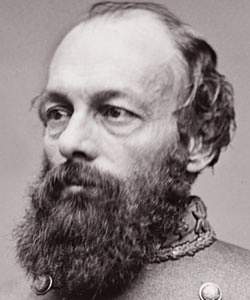Edmund Kirby Smith (American National Biography)
Scholarship
In July 1863 President Jefferson Davis granted Smith "any assumption of authority which may be necessary" within his department. Despite Smith's best efforts, the maintenance of morale in "Kirby Smithdom," as the Trans-Mississippi Department was frequently described, became increasingly difficult because of poor communications with the Confederate capital at Richmond and a lack of fiscal resources. Smith was criticized for not doing more to support the war effort east of the Mississippi, but Union control of the river after 1863 rendered that virtually impossible. Smith was an able commander but an overextended administrator who, in his isolated circumstances, attempted to provide civil as well as military leadership within his jurisdiction, though a vocal minority found him wanting in both spheres. At no time did he interfere with the actions of the civil authorities unless these impeded his military initiatives. His efforts to break the Union blockade through a military thrust into Mexico and to secure foreign, principally French, assistance for his department were not notably successful. Despite his best efforts, he was never able to completely satisfy his superiors in Richmond, who were largely out of touch with the realities of his situation. During his two-year tenure, Smith created a number of general officers to fulfill his local requirements, some of whom were approved by President Davis, while others were not. Ultimately, the devaluation of the Confederate currency and insuperable logistical difficulties rendered Smith's situation untenable.
Keir B. Sterling, "Smith, Edmund Kirby," American National Biography Online, February 2000, http://www.anb.org/articles/05/05-00407.html.





